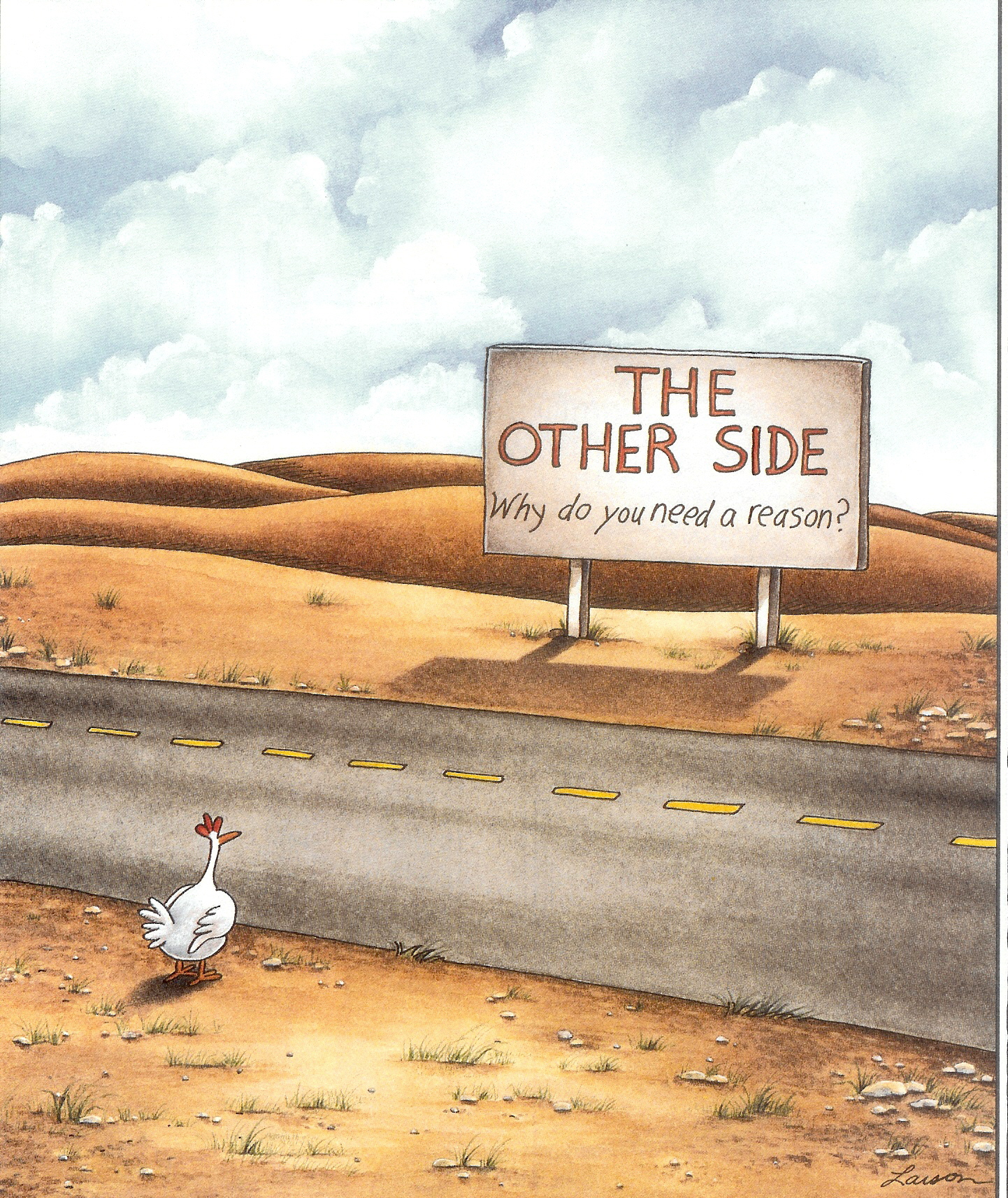When is a calorie not a calorie? To get to the other side (Yup, just another bad joke.)
This one gets bandied around a lot: “A calorie isn’t a calorie.” It’s a clever gimmicky catch-phrase because it a) challenges the reader to re-evaluate what they think is a set-in-stone rule and b) gives them the hope that the reason why they’re not making progress lies in the fact that their “truth” is in fact a lie.
I don’t need to get into the details of how this gimmick works. Why write about what everyone else has already written? The gist of it, however, is semantic. A calorie as unit of measurement of heat is a calorie, just like a foot as a measurement of distance is a foot. But the semantic “calorie” as a substitute term for “the energy your body derives from food”, is obviously going to be somewhat different from macronutrient to macronutrient due to their “inherent energy value,” the different absorption pathways they each take, and the function that they have in the body.
We all know that you can still consume energy excess even if you basically eliminate an entire macronutrient. We know that people who are obese generally tend to have lower protein intake (which you shouldn’t construe as causal). You _can_ get fat on a low-carb diet. The entire 80’s and 90’s are full of examples of fat people on low-fat diets. No matter how you spin it, excess energy consumption leads to fatness.
Similarly, (and I always feel the need to put in the disclaimer that we are not talking about individuals at the limit of physiology and physicality) a deficit of caloric intake generally results in loss of body mass.
I’m not usually one to make the argument that inter-individual differences in physiology make a huge difference in how people lose weight or gain muscle. While I acknowledge that the range of effects of just about any intervention is generally quite wide, I think if the intervention is really worth it, the wide range usually moves as a unit, and the universal “law” of the tails moving in a less linear direction applies (i.e. if you’re an outlier, you move a little less predictably, but the important part is that you still DO move). But let’s roll with this for a moment.
The problem with the semantic that the net derived energy from one macronutrient isn’t the same as a net energy derived from another macronutrient, is that it’s not actually practical. If a calorie isn’t a calorie and we assume that everyone is snowflake different, then how do you make a decision on how much to eat? It’s basically taking a, “How much slack can I get away with?” or “How little can I change what I’m doing?” approach to your eating.
Counting calories is generally imprecise as it is. Even if you’re weighing everything, your counts can be off by a couple of hundred calories, which is sometimes just enough to keep you in an energy excess or at least, at net zero. So if you’re counting calories at the most precise level of “how much energy will my body store if I eat this ‘gross’ calorie? (as opposed to ‘net’, not ‘disgusting), you’re still going to be off. Honestly, my life is too busy to sit there dividing my counts into three separate sub-counts (that I have to somehow figure out because they’re unique to me) with multiplier modifiers just so I can have one more piece of carb-free protein cheesecake (Look Ma! No carbs!) And the reality is that if you’re taking the “a calorie isn’t a calorie” approach to eating, chances are, you’re not counting anything anyways, other than your protein intake, because that’s precisely why people find this mind-trick appealing.
I believe (and yes, this is really just my opinion) that creating caloric awareness through a period of calorie counting is beneficial. Over time, you acclimatize to what a reasonable portion looks like, and you learn to jig things around to still taste the things you want. It’s definitely an energy-intense exercise–not something I recommend doing if your life is already stressful because the last thing you want to do when you’re over-stressed is add another stress of having to measure everything. Initially it’s shocking, but in many ways, not doing it is a little like trying to figure out how long it’s going to take you to drive to work without ever getting into a car.
Science is fascinating. Learning metabolic pathways is…generally only appealing to the nerdiest of nerds (of which I am one). There’s nothing wrong with being interested in the way your body works–knowledge really is power. Sure, protein, carbohydrate and fat are all metabolized differently which changes the net energy your body gets from them, but if you’re trying to enact change, learning how to cut branches when you’ve got a forest to clear just makes you really great at bonsai. Knowing that the metabolic pathways are different doesn’t really give you a reason to substantially change the way you change how you eat to reach your goals. The gimmick is set up to make you think you’re missing something important, when you’re probably just missing something inconsequential; which really translates to not missing anything at all.
